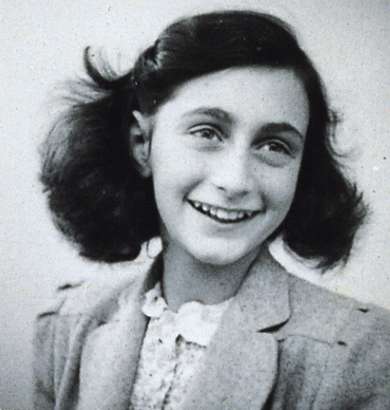
THE DIARY OF ANNE FRANK
UK, 2008, 150 minutes, Colour.
Elly Kendrick, Kate Ashfield, Geoff Breton, Iain Glen, Tamsyn Greig, Lesley Sharp, Ron Cook, Felicity Jones, Nicholas Farrell.
Directed by Jon Jones.
The Diary of Anne Frank is one of many versions of the celebrated diary written by the teenage girl in Amsterdam, in hiding in an attic from the Gestapo with her family for two years.
This version, made for television, is confined to the attic and the rooms in the house where the Frank family as well as the Van Dann’s are sequestered during the war. At times claustrophobic, the members of the two families become very irritated with each other but somehow or other survive. The film also emphasises Anne’s age and her personal and developmental growth.
Elly Kendrick is perhaps a bit knowing as Anne Frank – although she was rather precocious in her writings, her attitudes towards people, her egocentric behaviour which she gradually came to understand. Iain Glen is restrained as Otto Frank, a wise man devoted to his family. Tamsyn Greig is interesting as Edith Frank, staying in the background, despised in many ways by her daughter as just an ordinary housewife but having a great sense of fortitude. Lesley Sharp is also effective as the rather dominating Mrs Van Dann while Ron Cook is a touch subservient as her husband. Geoff Breton is Peter Van Dann, considered less than intelligent by Anne though she sometimes warmed to him. Felicity Jones is Margot Frank, Anne’s older sister, rather eclipsed in her ordinariness. Nicholas Farrell is the dentist who comes to share the lodgings and share Anne’s room part-time in order to do his writing. Kate Ashfield is Miep Gies who wrote a memoir on which this film is based.
The film is attentive to detail, helping the audience to understand what it was like to be confined in this space for the two years as well as the pressures on each of the members of the family to get on well with each other, to endure hardships and to share. The arrest, finally, has the tone of great pathos. Otto Frank in fact survived the concentration camp and lived till 1980.
1.The popularity of the story of Anne Frank? Revelations about the experience of the war in Holland? For the Jews? The concentration camps and the Holocaust? A story of the human spirit, survival?
2.The variety of versions, film versions, television? Theatre and plays? The memoirs of Miep Gies? The basis for this film as well as the diaries?
3.A television film, the narrower focus to the interiors of the house, the use of close-ups for the characters, the effect – the touch of claustrophobia? The clashes, the drama? The musical score?
4.The title, Anne Frank from age thirteen to fourteen? Her writing of the diary, her voice-over for the film? The contents of the diary, her capacity for observation of character and small detail, her creativity and imagination, literary style, moods?
5.The Frank family: Otto and Edith, the two girls? The company, the building of the offices, the staff? Their being hidden by the manager? The shelving? Their being Jewish and the effect of the war and Nazi attitudes towards the Jews? Enclosed in the upper building? The two girls and their age? Anne and her being dominating, self-centred? Margot as self-sacrificing? Edith as mother, as wife? Anne’s reaction to her mother, condemning her? Anne’s version of her father, always loving? The establishing of the routines, the quiet, toilet issues, freedom, lack of freedom, the windows? After hours and movement about the building? Having to make do and surviving?
6.The Van Dann family, the Franks taking them in, the effect? The father, quiet, considered a loser, criticised by his wife? Petronella and her dominance, talking, criticisms, meals? The coexistence of the two families? Peter as more quiet and slow?
7.The dentist, their taking him in, sharing Anne’s room, Anne’s critique, the desk, the shared facilities, his spending a lot of time in the toilet, wanting his rights at the desk? The life outside, the issue of food?
8.The detail of living together, the detail of the daily routines, opportunities for tension?
9.Miep Gies and the contact, bringing news, food, the papers?
10.The radio and listening to Britain, Churchill?
11.The character of Anne, her age, personality, wilful and egocentric, missing school, wanting to write, her ideas, changing, emotional, sexual awareness, contrast with Margot, talking with her, her attitude towards her mother, love for her father? The criticisms of the Van Danns? Mrs Van Dann and her commenting on Anne? The clashes with the dentist? Peter and the changes of attitude? The effect of the confinement on her?
12.Otto Frank, a good man, hardworking, cleaning out the toilet, selling the building …? His survival after the death of his complete family?
13.Edith, her range of moods, diligent, keeping the peace? Her concern about her daughters?
14.Margot, her attitude towards Anne, her own ambitions, the truth?
15.The sudden arrival of the Nazis, the arrest, people trying to avoid arrest, the effect?
16.The postscript and information about the deaths of all the characters? The extraordinary influence of Anne Frank and her diary in succeeding decades?